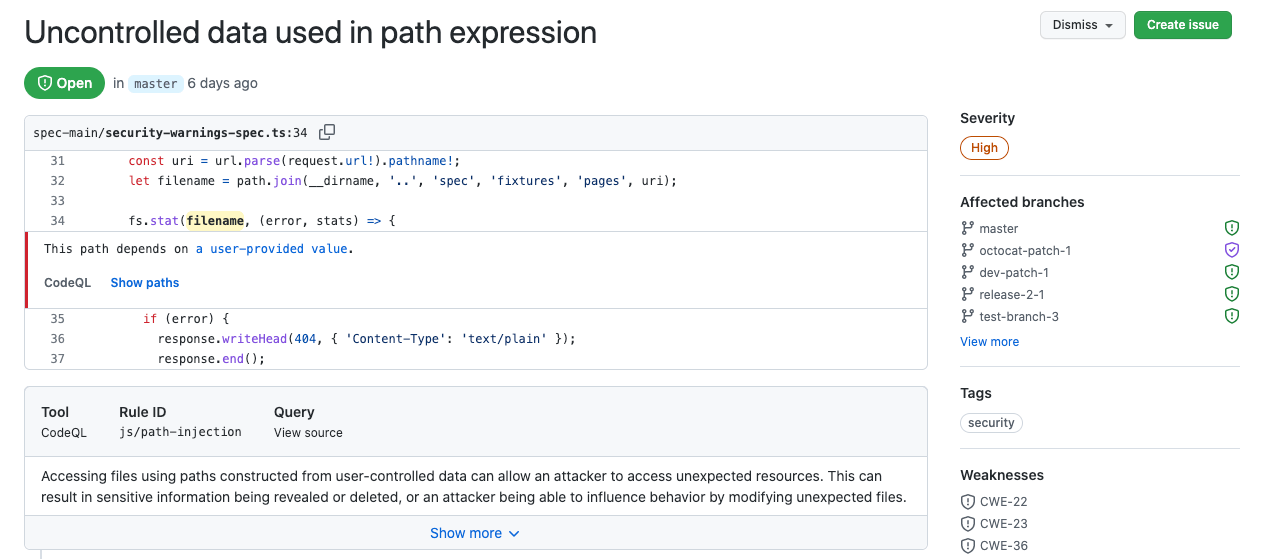Dependabot alerts now show if your repository code is calling known vulnerable functions from the dependency's vulnerability. If your code is calling vulnerable code paths, this information is surfaced via a "vulnerable call" label and code snippet in the Dependabot alerts UI. You can also filter for these alerts with has:vulnerable-calls from the Dependabot alert's search field.
Vulnerable functions are curated as part of GitHub's publishing process for the Advisory Database. New incoming Python advisories will be supported, and we're working on backfilling known vulnerable functions for historical Python advisories. After beta testing with Python we will add support for other ecosystems. Keep an eye on the public roadmap for more information.
This feature is enabled for supported Dependabot alerts on public repositories, as well as on repositories with GitHub Advanced Security enabled.
For more information on what we're shipping, read our post in the GitHub blog.






